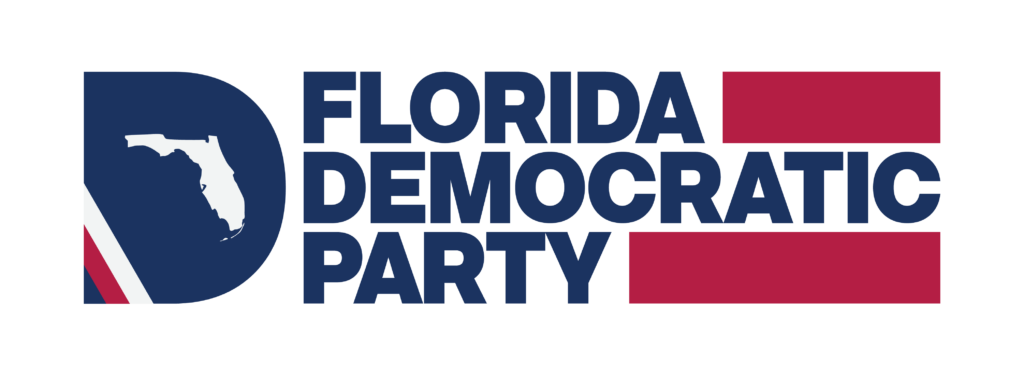In the News
Wa Po: Marco Rubio's Compelling Family Story Embellishes Facts, Documents Show


The Washington Post is reporting Senator Marco Rubio’s compelling family story embellishes the facts.
This news underscores that Senator Rubio has not been fully vetted by the public, and is perhaps why he has distanced himself from vice presidential talks. As a career politician, it’s no surprise Senator Rubio can’t back up his statements with facts.
Washington Post: Marco Rubio’s compelling family story embellishes facts, documents show
By Manuel Roig-Franzia, Thursday, October 20, 4:31 PM
During his rise to political prominence, Sen. Marco Rubio (R-Fla.) frequently repeated a compelling version of his family’s history that had special resonance in South Florida. He was the son of exiles, he told audiences, Cuban Americans forced off their beloved island after “a thug,” Fidel Castro, took power.
But a review of documents — including naturalization papers and other official records — reveals that Rubio’s dramatic account of his family saga embellishes the facts. The documents show that Rubio’s parents came to the United States and were admitted for permanent residence more than 21Ž2 years before Castro’s forces overthrew the Cuban government and took power on New Year’s Day 1959.
The supposed flight of Rubio’s parents has been at the core of the young senator’s political identity, both before and after his stunning, Tea Party-propelled victory in last year’s race for the U.S. Senate. Rubio — now considered a prospective 2012 Republican vice presidential nominee and a possible future presidential candidate — mentions his parents in the second sentence of the official biography on his Senate Web site. It says Mario and Oriales Rubio “came to America following Fidel Castro’s takeover.” And the 40-year-old senator with the boyish smile and prom-king good looks has drawn on the power of that claim to entrance audiences captivated by the rhetorical skills of one of the more dynamic stump speakers in modern American politics.
The real story of his parents’ migration appears to be a more conventional immigrant narrative, a couple who came to the United States seeking a better life. In the year they arrived in Florida, the future Marxist dictator was in Mexico plotting a quixotic return to Cuba.
Rubio’s office on Thursday confirmed that his parents arrived in the United States in 1956 but noted that “while they were prepared to live here permanently, they always held out the hope and the option of returning to Cuba if things improved.” They returned to Cuba several times after Castro came to power to “assess the situation with the hope of eventually moving back,” the office said in a statement.
In 2006, on the eve of his ascendance to speaker of the Florida House of Representatives, Rubio told an audience that “in January of 1959 a thug named Fidel Castro took power in Cuba and countless Cubans were forced to flee and come here, many – most – here to America. When they arrived they were welcomed by the most compassionate people on all the Earth.”
Wearing a red flower in his lapel, his voice sometimes emotional, he praised those who fled, calling them “a great generation.” But he also assured them: “Today your children and grandchildren are the secretary of commerce of the United States and multiple members of Congress, they are the CEO of Fortune 500 companies and successful entrepreneurs, they are Grammy winning artists and they are renowned journalists, they are a United States senator and soon, even speaker of the Florida House.”
The speech drew heavy coverage in Florida, for it was a momentous event. Rubio was the first Cuban American to become speaker of the House in the Florida Legislature.
Multiple documents signed by Rubio’s parents, including their petitions for naturalization, show that Mario and Oriales Rubio arrived in the United States on May 27, 1956. Marco Rubio has said his father came to the United States after enduring hardships in Cuba, including the loss of his mother when he was young.
Rubio has described his grandmother’s death in moving terms, although details have changed in his accounts. In February 2010, during Rubio’s electric speech to the C-PAC convention in Washington, he said that his grandmother died when his father was 6 and “the day after her funeral, he went to work selling coffee in the streets of Havana.” Seven months later, when his father died in the midst of Rubio’s Senate campaign, Rubio wrote in a beautifully crafted open letter that his father lost his mother when he was “just days shy of his ninth birthday.”
When Rubio’s parents left the island, Cuban migration to the United States was a trickle compared with what it would become in the years after Castro’s victory. “The vast majority of people who emigrated in the 50s went for economic reasons, not for political reasons,” said Maria Cristina Garcia, an expert on Cuban migration at Cornell University. The Rubios brought with them Marco’s older brother, Mario Rubio, who had been born in Cuba five years earlier. Their maternal grandfather, Pedro Victor Garcia, also immigrated to the United States around the same time.
The Social Security numbers of Marco Rubio’s father and grandfather are now public record because they are dead. Their Social Security numbers suggest that Mario Rubio received his Social Security number in Florida in 1956 and that Garcia received his in New York in 1956-57.
What’s known of their lives in the United States comes primarily from Marco Rubio’s speeches and writings. He talks and writes lovingly of his father, telling of the regular Sunday family trip to the International House of Pancakes and how his father managed equipment for his Pop Warner football team. His father was a bartender and school crossing guard; his mother worked as a hotel maid and stocking shelves at K-Mart. The family was itinerant, according to the senator, living at various times in New York and Los Angeles and spending several years in Las Vegas. But it appears most of their time was spent in the Miami area, where a 1958 city directory shows a Mario Rubio employed at the luxurious Roney Plaza Hotel.
In one 2010 interview with Fox News’s Sean Hannity, Rubio seemed uncertain of the date of his parents’ arrival, saying “My parents and grandparents came here from Cuba in ’58, ’59. His public statements reviewed by the Post did not give the true date — 1956.
His office tried to clarify the facts in its statement Thursday. After their 1956 arrival, the couple visited Cuba after Castro’s takeover. In 1961, Oriales Rubio took her two children back to Cuba “with the intention of remaining permanently.” Mario remained in Florida “wrapping up the family’s matters.” But within weeks of arriving there, “it because clear that Cuba was headed full speed towards Communism and they decided to return to the U.S,” the statement said.
Rubio’s staff allowed The Post to examine copies of his parents’ passports. They showed that between the couple’s admission for permanent residence and Castro’s victory on January 1, 1959, his father spent five days in Cuba and his mother spent no more than 2 months and 3 days there. The passports show that Rubio’s mother made at least four short trips to the island after Castro’s victory, including a month long stay in February and March 1961.
Marco Rubio was born in 1971 in Miami, and the next year, his older brother, Mario, petitioned for naturalization. The document, signed by Mario Victor Rubio, says Mario Rubio was “lawfully admitted to the United States for permanent residence on May 27, 1956.” The entry date coincides with notarized “Declaration of Domicile” — filed in Dade County Circuit Court by his father in 1974 . It states that “I … am and have been a bona fide resident of the state of Florida since the 27th day of May, 1956.”
On Sept. 9, 1975, Marco Rubio’s parents also petitioned for naturalization. Their petitions list the same date of admission to the United States as the petition of Rubio’s brother. It is unclear why Rubio’s parents chose to wait 15 years to seek naturalization.
The parents’ naturalization papers have begun to circulate on the Internet as part of a “birther” controversy related to Rubio’s eligibility for future presidential tickets. The controversy, which was reported this week in the St. Petersburg Times, has been compared to the frenzy surrounding President Obama’s birthplace, but in reality it bears a closer resemblance to the fight over Sen. John McCain’s eligibility in the 2008 election. Both the McCain squabble and the low-simmer Rubio case center on the definition of who is a “natural-born citizen.” In the last presidential cycle, some suggested that McCain was ineligible because he was born in the Panama Canal Zone.
A similar claim has been made in blogs and other forums because Rubio’s parents were not citizens when he was born in Florida in 1971. But legal scholars on both sides of the McCain debate told The Post that Rubio’s citizenship does not appear to be an issue.
Rubio emerged as a national political figure in 2009 when he took on the once-popular Republican Florida governor, Charlie Crist in a heated race for the Senate. Crist was forced to run as an independent because of Rubio’s surge.
In a television interview on Fox Business, Rubio spelled out the central message of his campaign.“I believe limited government has made America the most prosperous people in the history of the world.”
Then he pivoted to the theme that had served him so well. “And I think that the direction we’re going in Washington, D.C., would make us more like the rest of the world, and not like the exceptional nation that my parents found when they came here from Cuba in 1959, and the nation they worked in so hard so that I could inherit.”
Research editor Alice Crites contributed to this report.
This article is from reporting for a forthcoming biography of U.S. Sen. Marco Rubio (R-Fla.), scheduled to be published next year by Simon &Schuster.
http://www.washingtonpost.com/politics/marco-rubios-compelling-family-story-embellishes-facts-documents-show/2011/10/20/gIQAaVHD1L_print.html


